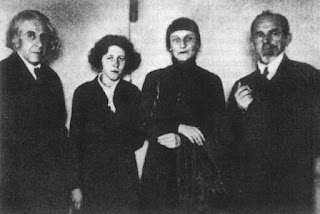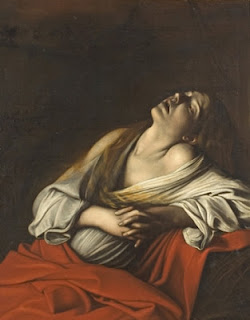Georgy Chulkov, Maria Petrovykh, Anna Akhmatova, and Osip Mandelstam (1930s) / Image courtesy of Wikipedia
Petrovykh was a poet of exquisite precision and subtlety – a friend of Osip Mandelstam, serving as an inspiration for his famed “Masteritsa vinovatykh vzorov,” and of Anna Akhmatova, who called her “Naznach’ mne svidan’e na etom svete” a “lyric masterpiece.” Yet, unlike her fellow masters, she hasn’t attained universal recognition. In part, this is due to her own humility; she published only one collection in her lifetime, and devoted most of her professional life to editing and translating the work of others. We feel it is high time for Petrovykh's own verse to benefit from the attention of translators as gifted and inspired as she herself was.I was glad to see that the submission guidelines this year ask for a 400-word commentary from the translator. It's frustrating when you work hard on something only to have others overlook the subtleties of its craftsmanship, but a commentary offers a simple solution to the problem.
Oh, and as always, first prize is a compass. How cool is that?


